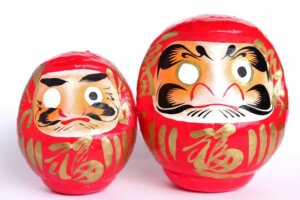In September 2024, Cesar Averia Jr., President and CEO of EDI-Staffbuilders International Inc., a wholly-owned subsidiary of John Clements Consultants, Inc., embarked on a business trip to Japan. His visit to this country, known for its technological innovations, rich cultural heritage, and economic strength, aimed to enhance existing partnerships and explore new opportunities for collaboration. Mr. Averia explored not only opportunities for Filipino workers in Japan but also the rich cultural landscape that shapes the Japanese workplace. Japan is renowned for its deep-rooted traditions and cultural practices, which significantly influence business interactions and ethics.
Economic Status of Japan
As of 2024, Japan boasts the fourth-largest economy in the world, with a nominal GDP of approximately $4.11 trillion and a GDP per capita of around $33,140. Despite facing challenges such as a declining birth rate and an aging population, Japan remains a significant player in the global market. The country’s economy is characterized by slow growth, with GDP growth projected at just 0.7% for the year. However, Japan continues to excel in key sectors such as manufacturing, robotics, and technology, underscoring its economic resilience.

Cultural Insights
Respect and harmony are foundational values in Japanese culture. These principles manifest in the workplace through practices such as consensus-building, where decisions are made collectively to ensure all voices are heard. Mr. Averia noted that understanding these cultural nuances is crucial for Filipino workers who wish to integrate successfully into Japanese society and the labor market.
Additionally, professionalism and a strong work ethic are highly valued in Japan. Workers are expected to demonstrate diligence, punctuality, and a commitment to continuous improvement—a concept known as kaizen. As Filipino workers prepare for roles in Japan, they must embody these values to align with the expectations of their Japanese counterparts.

Key Highlights
Mr. Averia’s visit revealed vast opportunities for Filipino workers in Japan, particularly in sectors grappling with labor shortages. The Technical Intern Training Program (TITP) and the Specified Skilled Worker (SSW) program serve as crucial pathways for skilled individuals to contribute meaningfully to Japan’s economy. By leveraging the unique skill sets and cultural understanding that Filipino workers bring, both nations stand to gain from mutually beneficial partnerships that foster economic growth and cultural exchange.

Skills Needed for Success
To thrive in Japan’s dynamic labor market, Mr. Averia highlighted several key skills that are increasingly in demand. Proficiency in the Japanese language stands out as a crucial asset, enabling workers to communicate effectively and foster trust with colleagues. Additionally, technical skills tailored to specific industries, such as manufacturing, construction, and hospitality, are essential for ensuring job competence and reliability.
Beyond technical expertise, adaptability and cultural sensitivity play vital roles in a successful integration process. Filipino workers in Japan are encouraged to embrace the country’s cultural practices and social etiquette, enriching their experiences and enhancing their interactions within the workplace.

The Daruma Doll: A Symbol of a Dream Realized
One of the most memorable moments during the presentation was when Mr. Averia inked the second eye on a Daruma Doll—a powerful symbol in Japanese culture. Traditionally, when someone sets a goal, they paint one eye of the Daruma. Once they achieve that goal, they fill in the other eye. For Mr. Averia, filling in the second eye represented not only his dream of reaching Japan but also his commitment to building strong ties with clients and creating new opportunities for Filipino workers. This gesture highlights the journey’s significance and serves as a reminder of the aspirations that connect our two countries.

Toward a Collaborative Future
Cesar Averia Jr.’s business trip to Japan provided valuable insights into the cultural dynamics and ethical standards that characterize the Japanese workforce. By focusing on the skills necessary for success and embracing these cultural values, Filipino workers in Japan can make meaningful contributions to Japan’s economy. The journey’s significance, beautifully encapsulated in the Daruma Doll, reflects the shared aspirations and potential for mutual growth between the two countries, paving the way for a brighter future for both nations.
Start Your Global Journey Today!
With John Clements Consultants, your dream job abroad is within reach. Discover how our overseas recruitment services can help you secure a position that aligns with your aspirations. Connect with us today!





